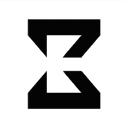zkVerify allows modular blockchain networks to offload the computationally heavy and expensive process of proof verification, enabling them to focus on their primary functions and stay ahead of their competition.
This modular approach not only streamlines operations but also significantly boosts overall network efficiency.
PoC Required
KYC required
Rewards
Rewards by Threat Level
Reward amount is 5% of the funds directly affected, capped at the maximum critical reward of:
$50,000Minimum reward to discourage security researchers from withholding a bug report:
$15,000Rewards by Threat Level
Rewards are distributed according to the impact of the vulnerability based on the Immunefi Vulnerability Severity Classification System V2.3. Reward Calculation for Critical Level Reports
For critical Blockchain/DLT bugs, the reward amount is 5% of the funds directly affected, capped at the maximum critical reward $50,000. However, a minimum reward of USD $15,000 is to be rewarded in order to incentivize security researchers against withholding on a bug report.
For critical Blockchain/DLT bugs with a non-funds-at risk impact, the reward will be paid out as follows:
- Network not being able to confirm new transactions (total network shutdown): $15,000
- Unintended permanent chain split requiring hard fork (network partition requiring hard fork): $15,000
For critical Blockchain/DLT bugs, the reward is dependent on the ratio between the funds at risk, which includes all affected projects on top of the respective blockchain/DLT, and the market cap according to the average between CoinMarketCap.com and CoinGecko.com, calculated at the time the bug report is submitted.
For critical web/apps bugs, reports will be rewarded with $10,000, only if the impact leads to: A loss of funds involving an attack that does not require any user action Private key or private key generation leakage leading to unauthorized access to user funds
All other impacts that would be classified as Critical would be rewarded a flat amount of $5,000. The rest of the severity levels are paid out according to the Impact in Scope table.
Reward Calculation for High Level Reports
For high Blockchain/DLT non-funds-at risk impacts, the reward will be paid out as follows:
- Temporary freezing of network transactions by delaying one block by 500% or more of the average block time of the preceding 24 hours beyond standard difficulty adjustments: $5000
- Causing network processing nodes to process transactions from the mempool beyond set parameters: $5000
In the event of temporary freezing, the reward doubles from the full frozen value for every additional 24h that the funds are temporarily frozen, up until a max cap of the high reward. This is because as the duration of the freezing lengthens, the potential for greater damage and subsequent reputational harm intensifies. Thus, by increasing the reward proportionally with the frozen duration, the project ensures stronger incentives for bug disclosure of this nature.
Program Overview
zkVerify allows modular blockchain networks to offload the computationally heavy and expensive process of proof verification, enabling them to focus on their primary functions and stay ahead of their competition.
This modular approach not only streamlines operations but also significantly boosts overall network efficiency.
Audits
KYC required
The submission of KYC information is a requirement for payout processing.
Proof of Concept
Proof of concept is always required for all severities.
Responsible Publication
Category 3: Approval Required
Prohibited Activities
- Any testing on mainnet or public testnet deployed code; all testing should be done on local-forks of either public testnet or mainnet
- Any testing with pricing oracles or third-party smart contracts
- Attempting phishing or other social engineering attacks against our employees and/or customers
- Any testing with third-party systems and applications (e.g. browser extensions) as well as websites (e.g. SSO providers, advertising networks)
- Any denial of service attacks that are executed against project assets
- Automated testing of services that generates significant amounts of traffic
- Public disclosure of an unpatched vulnerability in an embargoed bounty
- Any other actions prohibited by the Immunefi Rules
Feasibility Limitations
The project may be receiving reports that are valid (the bug and attack vector are real) and cite assets and impacts that are in scope, but there may be obstacles or barriers to executing the attack in the real world. In other words, there is a question about how feasible the attack really is. Conversely, there may also be mitigation measures that projects can take to prevent the impact of the bug, which are not feasible or would require unconventional action and hence, should not be used as reasons for downgrading a bug's severity.
Therefore, Immunefi has developed a set of feasibility limitation standards which by default states what security researchers, as well as projects, can or cannot cite when reviewing a bug report.



